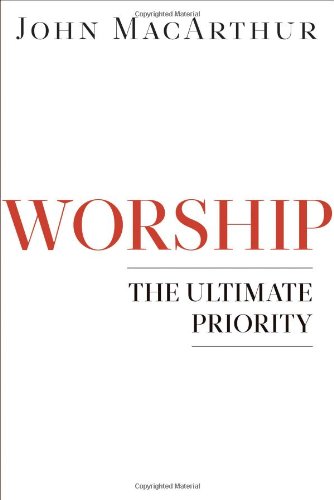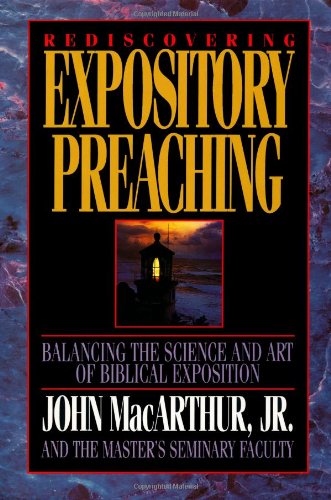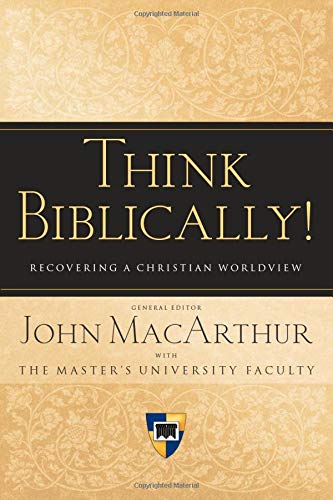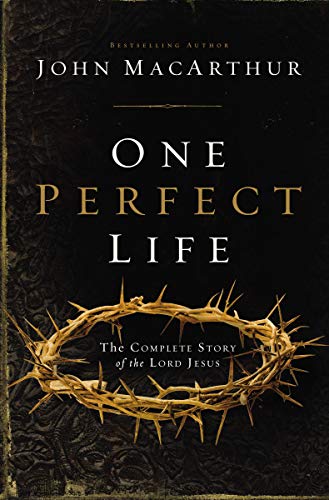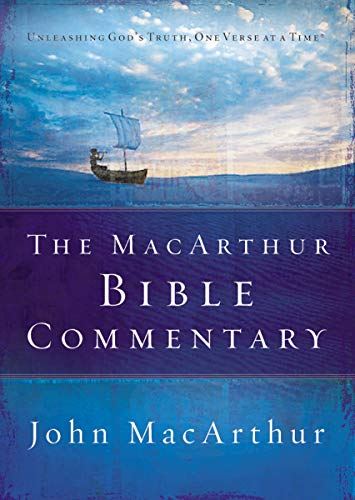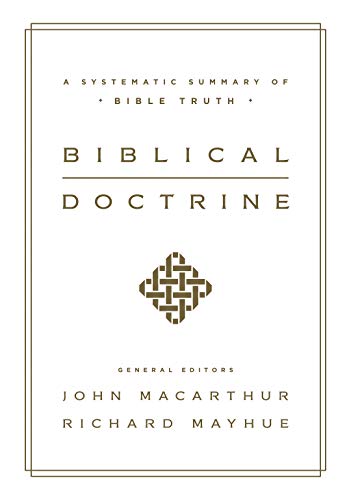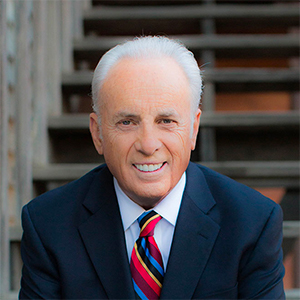
Quotes by John MacArthur
If you fail, father, to teach your son to fear God, the devil will teach him to hate God. If you fail to teach your son to guard his mind, the devil will gladly teach him to have an open mind. If you fail to teach your son to obey his parents, the devil will teach him to rebel and break his parent’s heart. If you fail to teach your son to select his companions, the devil will gladly choose them for him. If you fail to teach your son to control his body, the devil will teach him to give it over completely to lust. If you fail to teach your son to enjoy the marriage partner that God has given him, the devil will teach him to destroy the marriage. If you fail to teach your son to watch his words, the devil will fill his mouth with filth. If you fail to teach your son to pursue his work, the devil will make his laziness a tool of hell. If you fail to teach your son to manage his money, the devil will teach him to waste it on riotous living. And if you fail to teach your son to love his neighbor, the devil will gladly teach him to love only himself.
Crucial Lessons for a Wise Father, Selected Proverbs. This article originally appeared (www.gty.org/Resources/Sermons/80-71) at www.gty.org. © 1969-2008. Grace to You. All rights reserved. Used by permission.
Worldliness is any preoccupation with or interest in the temporal system of life that places anything perishable before that which is eternal.
Worldliness: it involves love for earthly things, esteem for earthly values, and preoccupation with earthly cares. Scripture plainly labels it sin – and sin of the worst stripe. It is a spiritual form of adultery that sets one against God Himself (James 4:4).
No Earthly Idea About Heaven taken from The Glory of Heaven by John MacArthur, copyright 1996, Crossway Books, a division of Good News Publishers, Wheaton Illinois, 60187, www.crosswaybooks.org, page 48.
True faith is always accompanied by repentance from sin. Repentance is more than simply being sorry for sin. It is agreeing with God that you are sinful, confessing your sins to Him, and making a conscious choice to turn from sin and pursue holiness (Isaiah 55:7).
Grace to You Ministries, All rights reserved. 1991. Used by permission. Printed copies of this tract are available for purchase. Call 800 55-GRACE for information.
Why do Christians get sick?
1. Some sickness comes from God (Ex. 4:11).
2. Some sickness comes from Satan (Lk. 13:11-13).
3. Some sickness is chastening for sin (Deut. 28:20-22; Psm. 119:67).
When you get sick, do two things: pray for healing and go to a doctor (see Isa. 38:21).
[In Ephesians 5] Paul was not suggesting that we can possess the Spirit in varying measures. The Holy Spirit is an indivisible person – one of the divine persons of the Trinity, which means that He Himself is God – and He either indwells a person or not. No one has the Spirit of God in partial measure. But to be “filled with the Spirit” is to be controlled by the Spirit. The contrast Paul made proves the point. To be drunk with wine is to have your faculties controlled by alcohol – to be so given over to its influence that the wine governs you in a negative way. To be filled with the Spirit is simply to be controlled by Him so that His power dominates you in a positive way.
Our enemy knows that when he strikes the shepherd, the sheep will scatter (Matt. 26:31), and church leaders – even as the Lord Himself – are Satan’s special targets. The more faithful and fruitful a pastor is, the more his people need to pray for his strength and protection. He is more subject to the devil’s schemes to make him discouraged or self-satisfied, hopeless or superficially optimistic, cowardly or overconfident. Satan uses every situation – favorable or unfavorable, successful or unsuccessful – to try to weaken, distract, and discredit God’s gifted men in their work of “equipping of the saints for the work of service” (Eph. 4:12).
We don’t want to be personally or institutionally offensive, but we cannot buffer the offense of the cross.
Here is why all the central truths of the gospel focus on the cross: It reveals how heinous our sin is. It shows the intensity of God’s wrath against sin. It reveals the great love of God in paying such a high price for redemption. But it also serves as a fitting metaphor for the cost of following Christ. Jesus himself spoke repeatedly of the cross in those terms.
There are basically only two kinds of religion in the world: those based on human achievement and those based on divine accomplishment. One says you can earn your way to heaven; the other says you must trust in Jesus Christ alone.
In our own day, there is no shortage of preachers who are willing to oblige such self-centered hearers. By and large, the most popular preaching is broad-minded, anecdotal, entertaining, ego-building, and, above-all, never confrontational or dogmatic. It offends no pride, disturbs no conscious, and is a clear reflection of the humanistic spirit of the age, in which tolerance and unity at any cost are the supreme virtues.
The preacher must put himself out of the way and let God’s Word speak through him unhindered. No matter what his training, experience, or personal abilities, he has spiritual authority only to the extent that what he says conforms to God’s Word. But as with Jesus’ own teaching, when a minister of God does faithfully proclaim that Word, those who reject his teaching reject God’s truth and are as much accountable for their rejection as if the Lord had spoken the truth with His own lips. It is in that way, and only in that way, that a pastor is able to speak with spiritual authority. It is also in that way that he is commanded to speak with spiritual authority.
The first characteristic of sexual sin is deceit. It never delivers what it promises. It offers great satisfaction but gives great disappointment. It claims to be real living but is really the way to death.
No sin that a person commits has more built-in pitfalls, problems and destructiveness than sexual sin. It has broken more marriages, shattered more homes, caused more heartache and disease, and destroyed more lives than alcohol and drugs combined. It causes lying, stealing, cheating and killing, as well as bitterness, hatred, slander, gossip and unforgivingness.
He offers peace from God (Romans 1:7) to all who are the recipients of His grace. He makes peace with God (Romans 5:1) for those who surrender to Him in faith. And He brings the peace of God (Philippians 4:7) to those who walk with Him.
The sorrow of true repentance is…sorrow for offense against a holy God, not simply regret over the personal consequences of our sin. Sorrow over being found out or over suffering hardship or discipline because of our sin is not godly sorrow, and has nothing to do with repentance. That sort of sorrow is but selfish regret, concern for self rather than for God. It merely adds to the original sin.
Prayer is the spontaneous response of the believing heart to God. Those truly transformed by Jesus Christ find themselves lost in wonder and joy of communion with Him. Prayer is as natural for the Christian as breathing.
Because the church doesn’t really have heaven on its mind, it tends to be self-indulgent, self-centered, weak, and materialistic. Our present comforts consume too much of our thoughts, and if we’re not careful, we inevitably end up inventing wrong fantasies about heaven – or thinking very little of heaven at all.
No Earthly Idea About Heaven taken from The Glory of Heaven by John MacArthur, copyright 1996, Crossway Books, a division of Good News Publishers, Wheaton Illinois, 60187, www.crosswaybooks.org, page 47.
We don’t seek to escape this life by dreaming of heaven. But we do find we can endure this life because of the certainty of heaven. Heaven is eternal. Earth is temporal. Those who fix all their affections of the fleeting things of this world are the real escapists, because they are vainly attempting to avoid facing eternity – by hiding in the fleeting shadows of things that are only transient.
No Earthly Idea About Heaven taken from The Glory of Heaven by John MacArthur, copyright 1996, Crossway Books, a division of Good News Publishers, Wheaton Illinois, 60187, www.crosswaybooks.org, page 51.
In one sense it is possible “to be so heavenly minded that we are of no earthly good.” But in a much deeper sense, it is impossible to be of any real earthly good unless we are heavenly minded. Only the heavenly minded will have the patience to continue faithful in God’s work when it becomes hard, unappreciated and seemingly unending. There is no greater cure for discouragement, fatigue or self-pity than to think of being in the presence of the Lord one day and of spending eternity with Him. We should make no apology for being heavenly minded.
Christians whose faith does not extend to heaven will have their eyes on the things of this world and will wonder why they are not happier in the Lord. Nothing in this life, including God’s most abundant earthly blessings, will give a believer the satisfaction and joy that come with absolute assurance of future glory.
Though many view giving as merely another obligation, it is in reality a priceless privilege, because it is the pipeline which brings God’s promised blessings to His people…Generous giving to God results in greater giving from God; it is impossible to outgive Him. The promises associated with giving (Lk. 6:38; 2 Cor. 9:6; Ac. 20:35) should stimulate believers to be sacrificially generous givers. Sadly, the powerful lure of the world’s advertising, slick appeals from purportedly Christian ministries, self-indulgence, and lack of faith all hinder believers from experiencing the full blessing of giving.
By God’s own sovereign decree, presidents, kings, prime ministers, governors, mayors, police, and all other governmental authorities stand in His place for the preservation of society. To resist government is therefore to resist God [Rom. 13:15; 1 Ti. 2:1-3; 1 Pet. 2:13-15].
Having faith is trusting in the revelation of God. In other words, if I know that something is consistent with God’s mind, if I know it is consistent with His will, if I know it is consistent with His purpose, if I know it is consistent with His desire, then I believe that and I can see that come to pass. It is faith in God as God is and God as God has revealed Himself to be. And how is that appropriated?… by prayer…. As we ask consistent with God’s revelation of Himself, consistent with the name of Jesus Christ and His purpose, consistent in an unselfish way to the glory of God, we can know we’ll receive it.
The Way of the Fig Tree: Promise Without Performance. The article originally appeared (www.gty.org/Resources/Sermons/2352) at www.gty.org. © 1969-2008. Grace to You. All rights reserved. Used by permission.
The one most valuable lesson humanity ought to have learned from philosophy is that it is impossible to make sense of Truth without acknowledging God as the necessary starting point.
A Christian has no need of human philosophy. It is unnecessary and, more often than not, misleading. Where it happens to be right it will agree with Scripture, and is therefore unnecessary. Where it is wrong it will disagree with Scripture, and is therefore misleading. It has nothing necessary or reliable to offer. By nature it is speculation, based on man’s limited and fallible insights and understanding. It is always unreliable and always divisive.
If we want answers to what life is all about – answers about where we came from, where we are going, and why we are here, about what is right and what is wrong – then human learning cannot help us. If we want to know the ultimate meaning and purpose of human life, and the source of happiness, joy, fulfillment, and peace, we have to look beyond even what the best human minds can discover. Man’s attempts to find such answers on his own are doomed to fail. He does not have the resources even to find the answers about himself, much less about God. In regard to the most important truths – those about human nature, sin, God, morality and ethics, the spirit world, the transformation and future of human life – philosophy is bankrupt.
It has been estimated that from the first “good morning” to the last “good night,” the average person engages in 30 conversations a day; some of you average more than that, some of you, less. Statisticians have estimated that each of us will spend 13 years of our life talking, and every day, our words could write a book of 50-60 pages. In a year, if we are just average, we could author 264 books of over 200 pages, just with our words. You can do more than that if you can speak in excess of 300 words per minute, as some of us are able to do, or if you talk incessantly at any speed.
Exposing the Truth About Men’s Hearts. The article originally appeared (http://www.gty.org/Resources/Sermons/2294) at www.gty.org. © 1969-2008. Grace to You. All rights reserved. Used by permission.
A corrupt and unholy heart eventually will be exposed by corrupt and unholy speech… If the tongue is not controlled by God, it is a sure indicator that the heart is not, either.
The tongue is you in a unique way. It is the tattletale on the heart and discloses the real person. Not only that, but misuse of the tongue is perhaps the easiest way to sin. There are some sins that an individual may not be able to commit simply because he does not have the opportunity. But there are no limits to what one can say, no built-in restraints or boundaries. In Scripture, the tongue is variously described as wicked, blasphemous, foolish, boasting, complaining, cursing, contentious, sensual and vile. And that list is not exhaustive. No wonder God put the tongue in a cage behind the teeth, walled in by the mouth!
The seed contains the pattern for the plant that grows. All the genetic code for an entire oak tree is contained inside the kernel of the acorn. Likewise, our resurrection bodies will bear a resemblance to the body that is buried – but with a far greater glory. We will be ourselves, only perfect. And the decomposition of the earthly will only facilitate the remaking of a glorified resurrection body – with none of the flaws of the old, but with all that is necessary for a perfect existence in heaven.
What Will We be Like in Heaven taken from The Glory of Heaven by John MacArthur, copyright 1996, Crossway Books, a division of Good News Publishers, Wheaton Illinois, 60187, www.crosswaybooks.org. page 132.
Parabole (parable) is a compound word made up of a form of the verb ballo (to throw, lay, or place) and the prefix para (meaning alongside of). The idea is that of placing, or laying, something alongside of something else for the purpose of comparison. A spiritual or moral truth would often be expressed by laying it alongside, so to speak, a physical example that could be more easily understood. A common, observable object or practice was used to illustrate a subjective truth or principle. That which was well known was laid alongside that which was not known or understood in order to explain it. The known elucidated the unknown.
That is God’s plan and purpose – to use Satan’s temptations as a means of testing and strengthening our faith in Him and of our growing stronger in righteousness. God allows testings in our lives in order that our spiritual “muscles” may be exercised and strengthened. Whether the testing is by God’s initiative or is sent by Satan, God will always use it to produce good in us when we meet the test in His power.
Ten steps to becoming a “Pragmatic Church”
1. “Easy-believism” gospel.
2. Place emphasis on some “work” for salvation and not the need to recognize and approach a holy God.
3. Teach half-truths.
4. Teach that grace replaces (instead of produces) holiness.
5. Teach that love and truth are opposed and obedience is legalism or optional.
6. Use fleshly things to attract unbelievers for evangelism and teach them that carnal, worldly lifestyles are acceptable.
7. Avoid the Biblical teachings that create humility in man and exalt God.
8. Teach the means of grace are optional.
9. Be “seeker-friendly” and avoid being “offensive.”
10. Place being “relatable” above “biblical accuracy.”
[Pragmatism] seems predicated on the idea that artificial technique and human strategy are crucial to the church’s mission. Many appear to believe that we can capture people for Christ and the church only if our programs are imaginative enough and our sermons are persuasive enough. Therefore they bend their philosophy of ministry to suit whatever techniques seem to satisfy the most unbelievers.
Resurrecting and Old Heresy from Our Sufficiency in Christ, 1991, Crossway Books, a division of Good News Publishers, Wheaton Illinois 60187, www.crosswaybooks.org. p. 32.
Wherever pragmatism exits in the church, there is always a corresponding de-emphasis on Christ’s sufficiency, God’s sovereignty, biblical integrity, the power of prayer, and Spirit-led ministries. The result is a man-centered ministry that attempts to accomplish divine purposes by superficial programs and human methodology rather than by the Word or the power of the Spirit.
Religious Hedonism in Our Sufficiency in Christ, 1991, Crossway Books, a division of Good News Publishers, Wheaton Illinois 60187, www.crosswaybooks.org. p. 152.
The most basic truths of our faith have fallen victim to [pragmatic], self-centered theology. Many modern-day evangelists have reduced the gospel message to little more than a formula by which people can live a happy and more fulfilling life. Sin is now defined by how it affects man, not how it dishonors God. Salvation is often presented as a means of receiving what Christ offers without obeying what He commands. The focus has shifted from God’s glory to man’s benefit. The gospel of persevering faith has given way to a kind of religious hedonism. Jesus, contemporary theology implies, is your ticket to avoiding all of life’s pains and experiencing all of life’s pleasures.
Religious Hedonism in Our Sufficiency in Christ, 1991, Crossway Books, a division of Good News Publishers, Wheaton Illinois 60187, www.crosswaybooks.org. p. 154-155.
God does not call all elders to be entrepreneurs, men who begin ministries and build them. Nor does He call all elders to be producers, men who accomplish a great amount of work in the church, although those are worthy things. Neither does He call all of them to be managers, adept at mobilizing others in the Lord’s service, although that, too, is a worthy thing. The Lord does, however, call all elders to be godly leaders, men who by their exemplary lives as well as their sound teaching and preaching set a pattern of virtue and devotion to the Lord for other believers to follow.
Marriage is a picture of Christ and the church. It is a sacred mystery. In fact, the sacredness of Christ’s church is linked to the sacredness of marriage. Christ is the heavenly Bridegroom and the church is His bride (Revelation 21:9). Marriage illustrates this union. The husband is called to be Christlike in his love for his wife because this protects the sacredness of the divine object lesson. The Christian husband therefore displays what he thinks of Christ by the way he treats his wife. And marriage itself is a sacred institution because of what it illustrates.
We are saved by grace (Eph. 2:8) and in grace we stand (Rom. 5:2). Grace upholds our salvation, gives us victory in temptation, and helps us endure suffering and pain. It helps us understand the Word and wisely apply it to our lives. It draws us into communion and prayer and enables us to serve the Lord effectively. In short, we exist and are firmly fixed in an environment of all-sufficient grace.
Sufficient Grace from Our Sufficiency in Christ, 1991, Crossway Books, a division of Good News Publishers, Wheaton Illinois 60187, www.crosswaybooks.org. p. 243.
Believers all belong to the same Lord, and are thus one with each other. Therefore anything that denies our oneness with each other denies our oneness with Him.
Being misrepresented, slandered, reviled, persecuted, and wrongfully accused is an inevitable part of being a Christian. We must expect to suffer unjustly. Our lives confront the culture we live in. We live as aliens in the world, and it should not surprise us when the world is hostile toward us (1 John 3:13). We were called for that purpose. In this world we will have tribulation (John 16:33). It goes with the territory.
A work that has little opposition from the antagonistic system of Satan is one that is doing little work for the Lord… The devil’s greatest opposition is the Lord’s greatest work.
The history of persecution of God’s people shows that the chief persecutor has been false religion. It is the purveyors of error who are the aggressive enemies of truth, and it is therefore inevitable that, as God’s Word predicts, the final world system of the antichrist will be religious, not secular.
God’s will may not be the perfection of the true believer’s life, but it is the direction of it.
Christians are not left in the world by accident but are placed there on divine assignment from their Lord.
When the New Testament talks about doubt, whether you’re talking about the gospels or the epistles, it primarily focuses on believers. That’s very important. It’s as if you have to believe something before you can doubt it; you have to be committed to it before you begin to question it. So doubt is held up as the unique problem of the believer.
Solving the Problem of Doubt. Matthew 11:1-6. The article originally appeared (www.gty.org/Resources/Sermons/2285) at www.gty.org. © 1969-2008. Grace to You. All rights reserved. Used by permission.
For some reason, we think of doubt and worry as “small” sins. But when a Christian displays unbelief…or an inability to cope with life, he is saying to the world, “My God cannot be trusted,” and that kind of disrespect makes one guilty of a fundamental error, the heinous sin of dishonoring God. That is no small sin.
Those who are furthest from giving mercy are furthest from receiving it.
God’s purpose in redeeming men from sin is not to give them freedom to do as they please but freedom to do as He pleases, which is to live righteously.
God calls all children to be obedient and respectful. Obedience is the act; honor is the attitude.
Cultivating a Godly Child, The article originally appeared (www.gty.org/Resources/Positions/111) at www.gty.org. © 1969-2008. Grace to You. All rights reserved. Used by permission.
The message for children is short and simple: obedience – in both attitude and action – is “right” (Eph. 6:1). It is “well pleasing to the Lord” (Col. 3:20). It is honoring to the parents. And it is good for the children – protecting them from a world of evil, prolonging their lives, and bringing them an abundance of blessing (see Eph. 6:1-3).
Evolution is simply the latest means our fallen race has devised in order to suppress our innate knowledge and the biblical testimony that there is a God and that we are accountable to Him (cf. Romans 1:28). By embracing evolution, modern society aims to do away with morality, responsibility, and guilt. Society has embraced evolution with such enthusiasm because people imagine that it eliminates the Judge and leaves them free to do whatever they want without guilt and without consequences.
[In reference to the temptation in the garden] “God is a liar,” (Satan) says. “He has deceived you, taken your freedom, and restricted your joy.” Satan’s lie is still the same today: “You can be free. Do whatever you want. It is your life. There are no divine laws; no absolute authority; and above all, no judgment. You will surely not die.”
Faith is only as reliable and helpful as the trustworthiness of its object; and Christian faith is powerful and effective because the object of faith, Jesus Christ, is infinitely powerful and absolutely dependable. Christian faith never fails, because the One in whom that faith is placed never fails.
Those who are pleasing to God testify with the penitent tax-collector in the Temple: “God, be merciful to me, the sinner!” (Luke 18:13). Augustine pleaded, “Lord, save me from that wicked man, myself.” John Knox, perhaps the greatest preacher in the history of Scotland, confessed, “In youth, in middle age and now after many battles, I find nothing in me but corruption.” John Wesley wrote, “I am fallen short of the glory of God, my whole heart is altogether corrupt and abominable, and consequently my whole life being an evil tree cannot bring forth good fruit.” His brother Charles, who penned so many great hymns, confessed, “Vile and full of sin I am.” Augustus Toplady, who wrote the beloved hymn “Rock of Ages,” said of himself, “Oh, that such a wretch as I should ever be tempted to think highly of himself. I am myself nothing but sin and weakness, in whose flesh naturally dwells no good thing.”
The family was God’s first earthly institution. Before there was a government, and long before God instituted the church, He ordained marriage and the family as the basic building block of society. The destruction of the family we are witnessing today is, I believe, a harbinger of the ultimate collapse of our entire society. The more the family is threatened, the more society itself is in danger of extinction. We’re living in the last days, and nothing shows that more graphically than the deterioration of the family.
It is difficult to see how Christianity can have a positive effect on society if it cannot transform its own homes.
It grieves me that so many believers view the doctrine of God’s sovereignty as a deterrent to a healthy, vibrant prayer life. That kind of thinking demonstrates an inadequate, incomplete and unacceptable understanding, both of God’s sovereignty and of prayer. In truth, we pray because God is sovereign – He alone has power over all human events. In praying, we don’t run from His sovereignty, we run to it. It’s absolutely true that God is sovereign over every detail of our lives. Job acknowledged that even the number of every person’s days is determined (Job 14:5). Life and death are in His hands (Jas. 4:15). Yet we eat and breathe and sleep and take measures to avoid any kind of calamity that might end our lives prematurely. Why? That’s the very same question as, “Why pray if God is sovereign?” Here’s the answer to why we need to breathe, and why we need to pray: God ordains the means as well as the end. And our prayers are one of the important means by which He accomplishes His will and glorifies Himself in the process.
Worship cannot be isolated or relegated to just one place, time, or segment of our lives. We cannot verbally thank and praise God while living lives of selfishness and carnality. That kind of effort at worship is a perversion. Real acts of worship must be the overflow of a worshiping life… As God warms the heart with righteousness and love, the resulting life of praise that boils over is the truest expression of worship.
Without such a vision of God’s holiness, true worship is not possible. Worship is not giddy. It does not rush into God’s presence unprepared and insensitive to His majesty. It is not shallow, superficial, or flippant. Worship is life lived in the presence of an infinitely righteous and omnipresent God by one utterly aware of His holiness and consequently overwhelmed with his own unholiness… If you have never worshiped God with a broken and contrite spirit, you’ve never fully worshiped God, because that is the only appropriate response to entering the presence of Holy God.
Worship is our innermost being responding with praise for all that God is, through our attitudes, actions, thoughts, and words, based on the truth of God as He has revealed Himself.
Worship is simply glorifying God; this means there is nothing required of us that cannot be done as an act of worship.
New Jerusalem taken from The Glory of Heaven by John MacArthur, copyright 1996, Crossway Books, a division of Good News Publishers, Wheaton Illinois, 60187, www.crosswaybooks.org, page 110.
The more we rejoice in our testings, the more we realize that they are not liabilities but privileges, ultimately beneficial and not harmful, no matter how destructive and painful the immediate experience of them might appear
[There is] a unique fullness of joy that the Lord graciously provides His children when they willingly and uncomplainingly endure troubles while trusting in Him – regardless of the cause, type, or severity of the distress. He will always use them for our benefit and for His own glory. It is not because of some sort of religious masochism, but rather a sincere trust in the promise and goodness of our Lord, that we can look on trials as a welcome friend, knowing with Joseph that what may have been meant for evil against us, God means for good (Gen. 50:20; cf. Rom. 8:28).
It is not that salvation requires faith plus works, but that works are the consequent outgrowth and completion of genuine faith.
The first declaration of the gospel is negative – that every man is sinful, separated from God, and condemned to hell. A person will not seek to be saved until he realizes he is lost. Therefore the first step in proclaiming the gospel is to tell men of their lostness, and the first step in receiving the gospel is to confess that lostness. A person will not seek healing until he is convinced he is sick; he will not seek life until he acknowledges he is dead. Conversion, then, occurs in one who is willing to accept the death sentence and also the acquittal of God. The man who does not recognize his condemnation to death has no hope for new life.
The truth is that unless people realize they have a sin problem, they will not come to Christ for a solution. People don’t come for healing unless they know they have a disease; they don’t come for life unless they are conscious that they are under the penalty of death; they don’t come for salvation unless they are weary of the bondage of sin.
So many Christians sealed their witness to Christ with their blood that martures (witness) came to mean “martyrs.” Their blood, as the second-century theologian Tertullian stated, became the seed of the church. Many were drawn to faith in Christ by observing how calmly and joyously Christians met their deaths.
Our responsibility is simply to make our witness faithful (1 Cor. 4:2); it is God’s responsibility alone to make it effective.
The concept of “name” has to do with person, character, nature, essence, who someone is. Therefore, we are not to take God, in the fullness of who He is, and treat Him in a vain way, or an empty, irreverent, impious, insincere, phony, fraudulent manner. Not taking the Lord’s name in vain, then, is not limited to cursing or something like that, but it means to treat God with irreverence, superficiality, insincerity, or phoniness, or to bring to God empty worship, hypocritical worship or honor. Someone has said frankly that God’s name is taken in vain more often in the church than outside of it, where people come and offer empty worship with their needless repetition, empty praise-words, singing without thought of God, praying with indifference, hearing the Word and never applying it – all of this is empty worship, phony, hypocritical. Such worship is damnable, condemned in the Word of God.
Confusing Man’s Traditions with God’s Commandments, Part 1 – Matthew 14:34-15:9. The article originally appeared (http://www.gty.org/Resources/Sermons/2311) at www.gty.org. © 1969-2008. Grace to You. All rights reserved. Used by permission.
God does not call His people to a ministry of inquisition. Now is not the time to rip the tares out. Our mission is not a political or military crusade, and this is not the time of judgment where we are called to distribute retribution. We are sent out rather to be ambassadors for Christ, emissaries of His mercy and grace.
True spiritual peace is completely different from the superficial, ephemeral, fragile human peace. It is the deep, settled confidence that all is well between the soul and God because of His loving, sovereign control of one’s life both in time and eternity. That calm assurance is based on the knowledge that sins are forgiven, blessing is present, good is abundant even in trouble, and heaven is ahead. The peace that God gives His beloved children as their possession and privilege has nothing to do with the circumstances of life.
God can work peace through us only if He has worked peace in us… Those who are in the best of circumstances but without God can never find peace, but those in the worst of circumstances but with God need never lack peace.
Someone once estimated that the number of random genetic factors involved in the evolution of a tapeworm from an amoeba would be comparable to placing a monkey in a room with a typewriter and allowing him to strike the keys at random until he accidentally produced a perfectly spelled and perfectly punctuated typescript of Hamlet’s soliloquy.
Another guarantee of our inheritance is our persevering faith. Peter said we are protected by God’s power through faith (1 Pet. 1:5). Faith is God’s gift to us; we don’t generate it on our own (Eph. 2:8-9; Phil. 1:29). Faith is aroused by grace, upheld by grace, and energized by grace. Grace reaches into the soul of the believer, generating and maintaining faith. By God’s grace alone we trust Christ, and by grace we continue to believe.
Treasure or Trash? from Our Sufficiency in Christ, 1991, Crossway Books, a division of Good News Publishers, Wheaton Illinois 60187, www.crosswaybooks.org. p. 51.
Perseverance attests to God’s approval, for it gives evidence of eternal life (salvation). In other words, perseverance does not result in salvation and eternal life, but is itself the result and evidence of salvation and eternal life.
[People] are not naturally inclined to look at themselves honestly, to perform a self-evaluation under the bright and perfect light of God’s Word. They know instinctively that their pride, self-will and love of sin will be exposed under the Lord’s righteous standards.
Of all the attributes of God, holiness is the one that most uniquely describes Him and in reality is a summarization of all His other attributes. The word holiness refers to His separateness, His otherness, the fact that He is unlike any other being. It indicates His complete and infinite perfection. Holiness is the attribute of God that binds all the others together. Properly understood, it will revolutionize the quality of our worship.
Prayers are the nerves that move the muscles of omnipotence. Prayer is not an exercise in futility because God’s will, will be done in any case; prayer is the means by which God’s will is carried out.
What Jesus forbids is self-righteous, officious, hasty, unmerciful, prejudiced, and unwarranted condemnation based on human standards and human reasoning… [He condemns] the judgment of motives, which no mere human being can know of another, and to judgment of external forms.
Original sin…means that people by nature are hostile to God, utterly unable to obey God out of pure motives or from a pure heart, and therefore unable to do anything that truly pleases God (Rom. 8:7-8). All Adam’s offspring are born naturally depraved and with a bent toward sin and rebellion.
According to Scripture, virtually everything that truly qualifies a person for leadership is directly related to character. It’s not about style, status, personal charisma, clout, or worldly measurements of success. Integrity is the main issue that makes the difference between a good leader and a bad one.
[Peace] is the very essence of His nature, one of His attributes. God is at all times at perfect peace, without any discord within Himself. He is never under stress, worried, anxious, fearful, unsure, or threatened. He is always perfectly calm, tranquil, and content. There are no surprises for His omniscience, no changes for His immutability, no threats to His sovereignty, no doubts to cloud His wisdom, no sin to stain His holiness. Even His wrath is clear, controlled, calm, and confident.
Faith and obedience are inescapably related. There is no saving faith in God apart from obedience to God, and there can be no godly obedience without godly faith.
Fearing God has two aspects. The first is reverence. It is a sacred awe of God’s utter holiness. It involves the kind of respect and veneration that results in fear in the presence of such absolute majesty. The second aspect is fear of God’s displeasure. Genuine faith acknowledges God’s right to chasten, His right to punish, and His right to judge.
Not to rebuke sin is a form of hatred, not love (Lev. 19:17). Refusing to warn a person about his sin is just as unloving as refusing to warn him about a serious disease he may have. A person who does not warn a friend about his sin cannot claim love as his motive.
[Among the] three categories of spiritual gifts there were temporary sign gifts. These were specific enablements given to certain believers for the purpose of authenticating or confirming God’s Word when it was proclaimed in the early church before the Scriptures were written. The temporary sign gifts included prophecy (revelatory prophecy), miracles, healings, tongues, and interpretation of tongues. The sign gifts had a unique purpose: to give the apostles credentials, that is, to let the people know that these men all spoke the truth of God. Once the Word of God was inscripturated, the sign gifts were no longer needed and they ceased.
His birth was common. Men wouldn’t have had a common birth for such a King. But it was celebrated with hallelujahs by the heavenly host in the heavens above. His lodging was poor and men wouldn’t have put Him in a stable but it was attended to by celestial visitants. It was marked by a conflux of stellar bodies. He had not the magnificent equipage of other kings but He was attended by multitudes of patients seeking and obtaining healing of soul and body. He made the dumb that attended Him sing His praises and the lame leap for joy and the deaf to hear His wonders and the blind to see His glory. He had no guard of soldiers, no magnificent retinue of military men, but centurions took orders from Him…and so have millions across the earth. He didn’t control a vast empire of those who did all of His bidding, but the waves and the winds and the storms which no early power can control obeyed Him. And death and the grave durst not refuse to deliver up their prey when He demanded it. He didn’t walk on velvet tapestry but when He walked on the sea the water held Him up. All parts of the creation except sinful men honored Him as their creator. He had no vast incomprehensible treasure of wealth but when He needed His money to pay His taxes, a fish yielded it up out of its mouth. He had no barns and He had no corn fields, but when He wanted to fill the hearts and the stomachs of a multitude, He created the food right out of His own hands. And no monarch in history ever entertained that way. He didn’t have the fantastic group of people sorrowing like other people have on occasions that demanded sorrow on His behalf, but the frame of nature itself solemnized the death of its author, heaven and earth were mourners, the sun was clad in black and if the inhabitants of the earth were unmoved, the earth itself trembled under the awful load. And there were few to pay the Jewish custom of rending their garments at His death, so the rocks took their place and rent their own bowels. He didn’t have a grave of His own, but other men’s graves open to Him. He came not as the subject of death, but as the conqueror and invader of its territory and He rose victorious.
Offending Christ. The article originally appeared (http://www.gty.org/Resources/Sermons/2320) at www.gty.org. © 1969-2008. Grace to You. All rights reserved. Used by permission.
We must not be so engulfed in trying to force social behavior to conform to our standards that we become enemies of those our Lord has called us to win to Himself. We must reject sin and never compromise God’s standards of righteousness. But we also must never engage in defamation and denigration of the lost sinners who make up our corrupt culture. When Christians become political, sinners become the enemy instead of the mission field.
Statistics show that the average child living at home in America watches at least twenty-eight hours of television each week. (For some kids, the total is much higher.) Programming that targets young people is often the very worst at deliberately glamorizing sin. By the time most young people graduate from high school, they have been overexposed to the grossest kinds of evil through “entertainment” media in mind-numbing ways – so that nothing seems particularly appalling anymore. After all, drug use, immorality, violence, and profanity are standard fare on television. When a whole generation has been raised on a steady diet of that stuff, it’s no wonder that sin no longer seems exceedingly sinful to them.
This Passover [just before our Lord’s sacrifice], after 1500-plus years of Passovers, was the last divinely sanctioned and authorized Passover ever held. Any Passover ever celebrated after this one is not authorized by God. It is a remnant of a bygone economy, of an extinct dispensation, of a covenant no longer in vogue. It is vestigial. It serves no significant purpose. Jesus here celebrated the Passover as a way to bring it to its end. The bell tolled in the upper room for the old economy. Christ ended the long years of Passover and began a new memorial feast which He begins to institute in verse 26 [of Matthew 26]. And this new feast is the feast not of the old economy but the new economy, not the old covenant but the new covenant, not the Old Testament but the New Testament, not looking to a lamb in Egypt but a Lamb of God on a hill of Calvary. So, Jesus ends the old before He begins the new. And after having drawn the curtain on the Passover of the old economy, He institutes the feast of the new.
The Last Passover Part 2, The article originally appeared (www.gty.org/Resources/Sermons/2383_The-Last-Passover-Part-2) at www.gty.org. © 1969-2008. Grace to You. All rights reserved. Used by permission.
All sin results from failure to act in faith.
Deny that we are justified by faith alone, and you must devise an explanation of how we can make the transition from our imperfect state in this life to the perfect state of heaven. Purgatory is where Roman Catholics believe most people go after death to be finally purged of their sins and gain whatever merit they may be lacking to enter heaven. Catholicism teaches that this will involve intense pain and suffering.
What Will Heaven be Like taken from The Glory of Heaven by John MacArthur, copyright 1996, Crossway Books, a division of Good News Publishers, Wheaton Illinios,60187, www.crosswaybooks.org, p. 74.
Although Catholic doctrine denies that the imputed righteousness of Christ is sufficient to save sinners in this life, it does allow the imputation of righteousness from earthly sinners to those in purgatory. Candles are lit, prayers are prayed, and Masses are said for the dead. Supposedly the righteousness earned via the sacrament is imputed to the person in purgatory, and that shortens his or her stay there.
What Will Heaven be Like taken from The Glory of Heaven by John MacArthur, copyright 1996, Crossway Books, a division of Good News Publishers, Wheaton Illinios,60187, www.crosswaybooks.org, p. 75.
For all believers, because we are fully justified, there can be no condemnation. No post-mortem suffering is necessary to atone for remaining in sin; all our sins are covered by the blood of Christ. No merit is lacking that must be made up (Isa. 61:10).
What Will Heaven be Like taken from The Glory of Heaven by John MacArthur, copyright 1996, Crossway Books, a division of Good News Publishers, Wheaton Illinios,60187, www.crosswaybooks.org, p. 75.
If anyone were a candidate for purgatory, [the] thief [from Luke 23] would be. Moments before, he had taunted Christ along with the unrepentant thief (Mark 15:32). His repentance was a last-minute change – while he was literally in his death throes. Yet Jesus promised to see him that very day in paradise.
What Will Heaven be Like taken from The Glory of Heaven by John MacArthur, copyright 1996, Crossway Books, a division of Good News Publishers, Wheaton Illinios,60187, www.crosswaybooks.org, p. 78.
Jesus had little trouble reaching the harlots, the thieves, robbers, criminals, outcasts, and sinners of society, including the tax collectors and the extortionists, but He had an almost impossible time reaching the religious, self-righteous, moral people who were under the illusion and self-deception that because of their goodness, everything was OK between them and God. They recognized no sin, so they needed no Savior. That is always the danger of morality. Morality creates an illusion of safety when in fact the person who is moral may be in the greatest danger of all.
Reformation vs. Relationship, The article originally appeared (www.gty.org/Resources/Sermons/2296) at www.gty.org. © 1969-2008. Grace to You. All rights reserved. Used by permission.
Morality, in and of itself, is a damning thing. Self-righteousness is a damning thing. You’d be better off to be immoral and face the reality of your needs so that you would come to a Savior, than to live under the illusion that because you have a moral code on the outside, all is well on the inside between you and God.
Reformation vs. Relationship, The article originally appeared (www.gty.org/Resources/Sermons/2296) at www.gty.org. © 1969-2008. Grace to You. All rights reserved. Used by permission.


